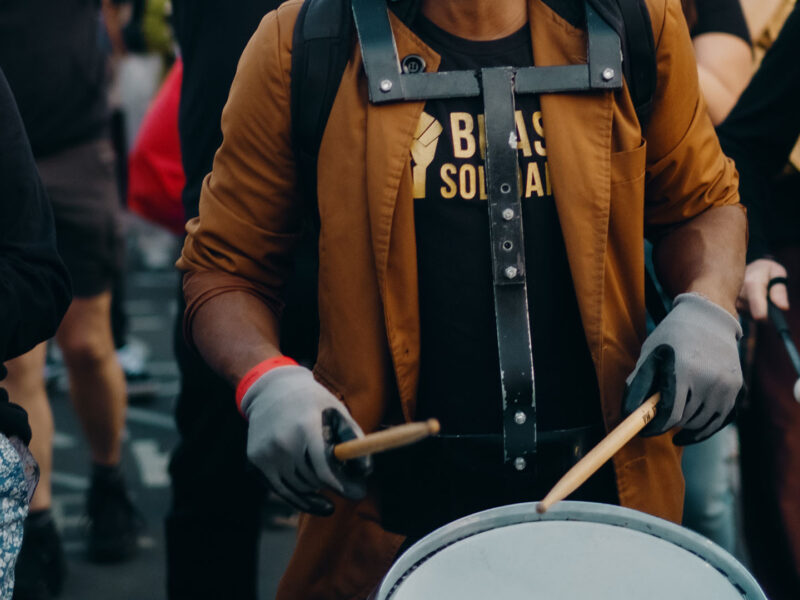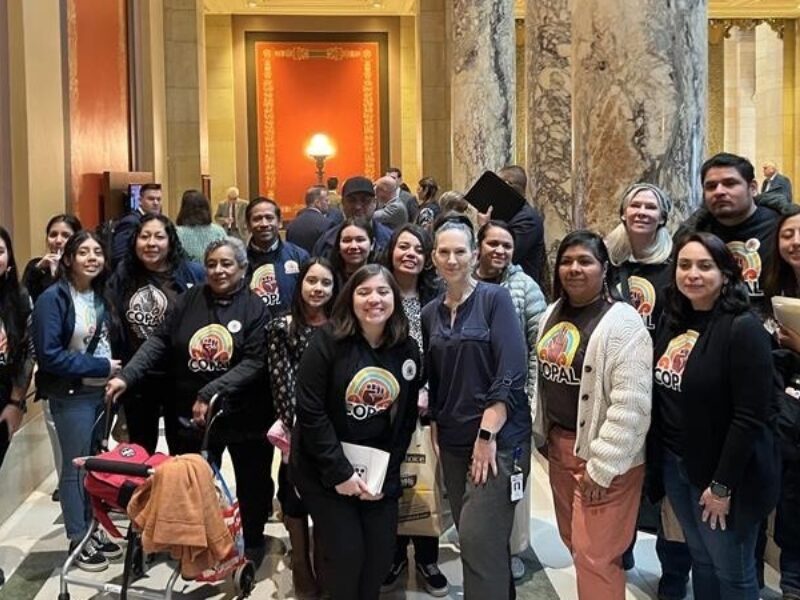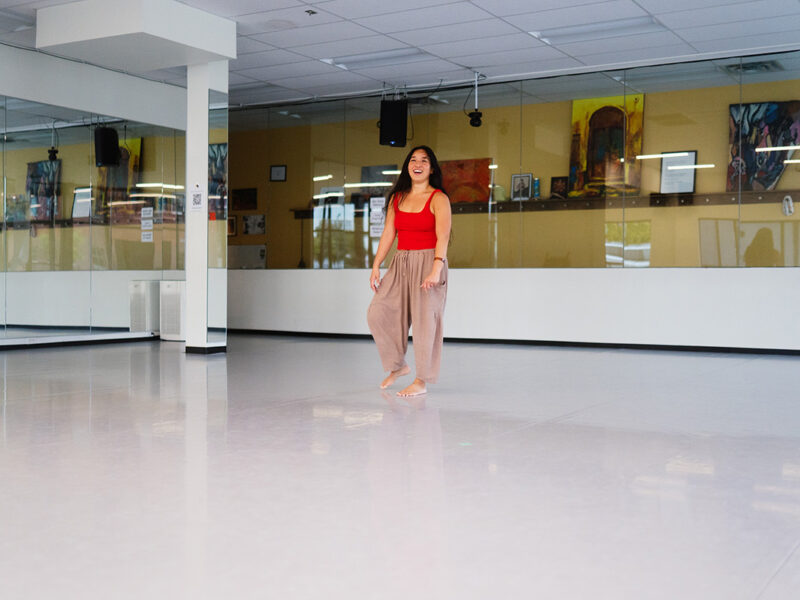In this guest blog post, the Volunteer Lawyers Network (VLN) explains how an eviction moratorium has helped Minnesotans keep safe and secure housing throughout the pandemic.
Updated Sept. 12, 2021
Minnesota's eviction moratorium is phasing out from June 30, 2021 through June 1, 2022. For more on the eviction moratorium phaseout in Minnesota, visit HOME Line. For more answers to common questions about the eviction moratorium, please read more below or visit LawHelpMN.org. For more on the national eviction moratorium, visit the National Low Income Housing Coalition.
Ed. Note - The Foundation occasionally offers this platform for nonprofit leaders to share their thoughts on current events. This is a guest blog post written by the Volunteer Lawyers Network. To learn more about VLN and their work in our community, visit their website.
By Volunteer Lawyers Network
Minnesota’s strong eviction moratorium, which prohibits evictions except in four narrow situations, has helped keep renters stably housed throughout the pandemic and thereby helped to keep all Minnesotans safe by reducing the spread of COVID-19. With no definite end date in site, Minnesotans would be wise to keep their strong eviction moratorium in place as long as they can.
The State of Eviction Moratoriums in Minnesota
Minnesota’s first eviction suspension due to the pandemic was ordered on March 23, 2020, through Governor Walz’s Executive Order 20-14. The moratorium was clarified on June 5, 2020, in Executive Order 20-73, and then modified into the current order in Executive Order 20-79 on July 14, 2020. The current order prohibits evictions except where:
- certain criminal behaviors are alleged
- the tenant is seriously endangering other tenants or others on the premises
- the tenant is causing significant property damage to the premises or
- the landlord or immediate family members need to move into the property.
Minnesota’s moratorium does not modify or relieve tenants of their obligation to pay rent.
Executive Order 20-79 has no end date but instead has the possibility to ending every 30 days.
With the convening of the 2021 legislative session, there is a push to reduce the eviction moratorium into a statute and include some type of ramping down period. As currently enacted, the eviction moratorium could end with little to no warning.
Also of note is the federal moratorium, which currently has little to no effect in Minnesota because the protections of Minnesota’s moratorium are broader. The federal moratorium was recently extended to March 31, 2021. If Minnesota were to completely rescind its moratorium, the federal moratorium would be the prevailing law and there would at least be the protections of the federal moratorium until it expires.
The Human Impact of Evictions
Evictions at any time force people to leave their home quickly, without a well-thought-out plan of where to live next, and most likely moving them into a shared living situation with family, friends or in a shelter. Shared living situations spread COVID-19 more rapidly. Thus, ensuring that individual families have safe and secure housing during a pandemic through measures like the eviction moratorium rises to a new level of importance because it slows the spread of COVID-19 and thereby protects community well-being.
We also know that Black and Brown families are disproportionately affected by evictions.
A 2018 study by Volunteer Lawyers Network (VLN) and Mid-Minnesota Legal Aid found that 79% of the tenants receiving full representation in an eviction case were people of color. We further know that Black and Brown populations are disproportionately affected by COVID-19. Thus, Minnesota’s eviction moratorium provides valuable protection to those who are both more likely to be evicted and more susceptible to COVID-19.
COVID-19 Increased in States Without Moratoriums
If the above in itself is not enough to convince Minnesotans that a strong eviction moratorium is necessary, the results of a recent study out of the University of California, Los Angeles (UCLA) should.
Researchers at UCLA and several other prominent universities and organizations studied the COVID-19 rates of states with strong eviction moratoriums and compared those results with COVID-19 rates in states with weak or no eviction moratoriums. The results of the report are notable but not surprising. The study shows that both the incidence of and death due to COVID-19 increased 1.6 times in states without moratoriums. In real numbers, the study estimated that the early lifting of eviction moratoriums resulted in an additional 433,700 cases of COVID-19 and 10,700 deaths.
These are numbers that could have been avoided if strong eviction moratoriums had been in place.
Volunteer Lawyers Network
Volunteer Lawyers Network’s mission is to promote and protect the rights of low-income Minnesotans through the power of volunteers. Essentially, VLN is a clearinghouse which matches low-income clients seeking legal help with lawyers who are willing to provide their services for free.
VLN helps clients with many different legal issues, including family law, bankruptcy, immigration, housing, criminal record expungement and general civil legal issues. VLN volunteer lawyers provide legal services through many community and courthouse based clinics (in non-pandemic times) and via the phone and Zoom services (during the pandemic).
Support For Those Facing Eviction
VLN’s Housing Program has clinics right in the courthouse during eviction initial appearance cases in Hennepin, Ramsey and Anoka County. The goal is to provide at least legal advice to anyone going through an eviction who cannot afford a lawyer, and the hope is that someday, there will be a right to counsel for anyone potentially losing their home. At these courthouse clinics, lawyers are on hand to talk with tenants about the eviction process, answer their questions, review their cases for defenses, and help with the settlement process.
VLN does its work at these clinics in partnership with the local Legal Aid, a mediation and financial assistance organization. With these three main areas of service (legal, mediation and financial), the hope is that tenants can be connected with all the services that they need to address their case at the time they need to address it.
For tenants going through an eviction in Ramsey County, both during the pandemic and afterward, VLN and its partners, Southern Minnesota Regional Legal Services (SMRLS), the Dispute Resolution Center (DRC), Neighborhood House, and Ramsey County Emergency Assistance, will be available outside the courtroom during eviction first appearances to provide legal, financial and mediation assistance. These organizations assist tenants in understanding their legal rights, getting funding to pay back rent, and mediating agreements between parties.
So, while Minnesota’s eviction moratorium provides the most protection for Minnesota renters, these service providers are willing, able and ready to assist those who do find themselves facing eviction while the moratorium is in effect and beyond.
If You or Someone You Know Needs Help
If you or someone you know has a landlord who is threatening eviction or has filed an eviction, seek legal help right away. VLN has online intake 24/7 at www.vlnmn.org/help. VLN’s phone intake is Monday, Wednesday and Thursday from 9 a.m. - 1 p.m. at 612.752.6677. Local Legal Aid programs also provide services to low-income tenants going through an eviction (www.mylegalaid.org / 1.800.292.4150). Attorney General’s office is also actively enforcing the eviction moratorium. Complaints about landlords filing or threatening to file an eviction in violation of the Executive Order 20-79 can be made on the Attorney General’s website.









